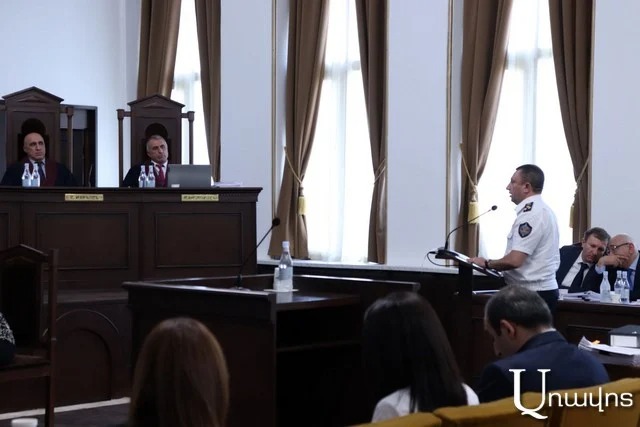“The applicants lavishly used the term ‘call for violence’ to present to the court the criminal significance of the statements of the leaders of the political forces, but let us not forget that not every coercion is violence, this is a simple explanation,” the representative of the Prosecutor’s Office of the Republic of Armenia, Karen Bisharyan, said during the Constitutional Court session on Monday regarding the statements made by Civil Contract leader Nikol Pashinyan during the campaign, which he said contained a call for violence, instilled an atmosphere of fear, and influenced the will of the voters.
“If we are talking about legal coercion, there can be no talk of violence. We assess the issue from a criminal-legal point of view, taking into account the status of the summoned persons without exception. All the calls were made by the leaders of the participating political forces. Another important circumstance is the context of the statements. Perhaps the applicants are not deliberately saying that the idea of the hammer being a symbol that pursues the goal of establishing a dictatorship of law has passed like a red thread through Civil Contract leader Nikol Pashinyan’s statements. It is obvious that the context of what he said does not involve violence. Perhaps it can be in reference to coercion, but every coercion is not a form of violence. Coercion can be legal,” Karen Bisharyan said.
According to him, Pashinyan emphasized several times throughout his speeches that it is not necessary to take the hammer literally. It is a symbol of a dictatorship of law. Therefore, it is important for the applicants to appropriately evaluate what he said.
On Monday, the Constitutional Court continued to consider the applications of the opposition political forces, the Armenia and I Have Honor alliances and the Zartonk and Armenian Homeland parties disputing the results of the June 20 elections.
Read also
Luiza Sukiasyan





















































